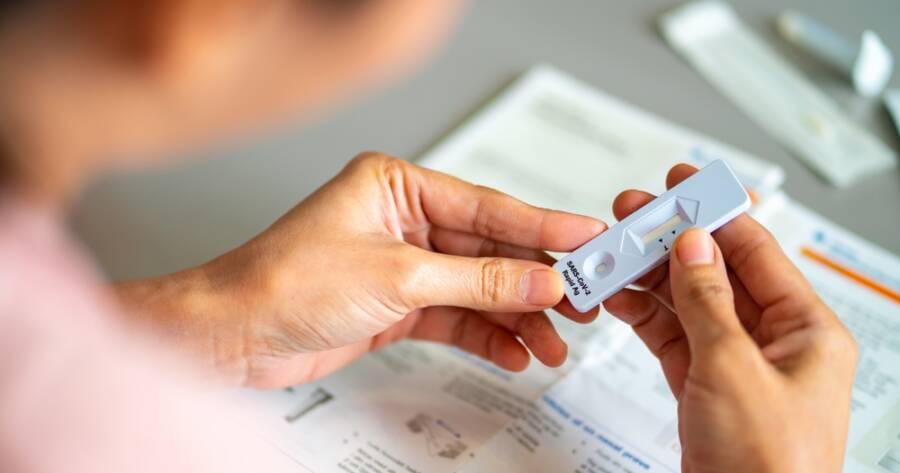The COVID-19 pandemic has underscored the importance of accessible testing to help manage and mitigate the spread of the virus. While various testing options are available, many individuals may seek free testing resources within their communities. This article explores potential avenues to locate free COVID-19 tests across the United States, offering guidance on how to access these services.
Federal Programs Offering Free COVID-19 Tests
The U.S. government has periodically provided free at-home COVID-19 test kits to residents. For instance, as of September 2024, households could order up to four free tests through the official website, COVIDTests.gov.
These tests are typically shipped via the United States Postal Service and are designed to detect current COVID-19 variants. Availability and program details may change over time, so it’s advisable to check the website regularly for the most current information.
State and Local Health Departments
State and local health departments often coordinate free testing initiatives. Many have established testing sites or partnered with community organizations to provide no-cost testing. For example, in Washington, D.C., free tests were made available in libraries starting November 22, 2024.
Similarly, North Carolina offered free tests at over 200 locations. Residents are encouraged to visit their state or local health department’s website or contact them directly to find testing sites and schedules.
Community Health Centers and Clinics
Federally Qualified Health Centers (FQHCs) and other community clinics may offer free or low-cost COVID-19 testing, especially for uninsured or underinsured individuals. These centers aim to serve vulnerable populations and often provide testing without requiring appointments. To locate a nearby FQHC, individuals can use the Health Resources and Services Administration’s (HRSA) Find a Health Center tool on their official website.
Pharmacies and Retailers
Some pharmacies and retail chains have participated in federal programs to provide free COVID-19 testing. While certain programs may have concluded, it’s possible that local branches continue to offer testing services at no cost. It’s recommended to contact local pharmacies or visit their websites to inquire about current testing availability and any associated fees.
Employer and School Testing Programs
Employers and educational institutions have implemented testing protocols to ensure safety within their environments. Employees and students may have access to free testing through their workplace or school health services. It’s advisable to consult with human resources departments or school administrators to learn about available testing options and schedules.
Insurance Coverage for COVID-19 Testing
While federal mandates requiring insurance companies to cover COVID-19 testing without cost-sharing have evolved, many insurance plans may still provide coverage for testing under certain circumstances. Policyholders should review their insurance benefits or contact their insurance provider to understand the extent of coverage for COVID-19 testing and any potential out-of-pocket costs.
Considerations When Seeking Free Testing
When pursuing free COVID-19 testing, it’s important to consider the following:
- Eligibility Criteria: Some testing sites may have specific eligibility requirements, such as residency within a certain area or exhibiting symptoms.
- Appointment Requirements: While many sites offer walk-in testing, others may require appointments. It’s advisable to verify this information beforehand.
- Test Types: Testing sites may offer different types of tests, such as PCR or rapid antigen tests. Understanding the differences can help individuals choose the most appropriate option.
- Result Turnaround Time: The time it takes to receive results can vary depending on the test type and testing site. It’s beneficial to inquire about expected timelines, especially if timely results are needed.
Staying Informed About Testing Resources
Testing availability and guidelines can change based on factors such as public health policies and resource allocation. To stay informed:
- Regularly Check Official Sources: Visit official websites, such as the Centers for Disease Control and Prevention (CDC) and state health departments, for updates on testing recommendations and resources.
- Subscribe to Alerts: Many health departments offer email or text alerts to keep residents informed about testing sites and public health updates.
- Engage with Community Organizations: Local community organizations often disseminate information about testing events and resources, particularly for underserved populations.
Find Tests Today!
Access to free COVID-19 testing is a vital component in managing the spread of the virus and ensuring public health. By exploring federal programs, engaging with state and local health departments, and utilizing community resources, individuals can locate free testing options in their area. Staying informed and proactive in seeking testing when needed contributes to the collective effort to navigate the ongoing challenges posed by COVID-19.

